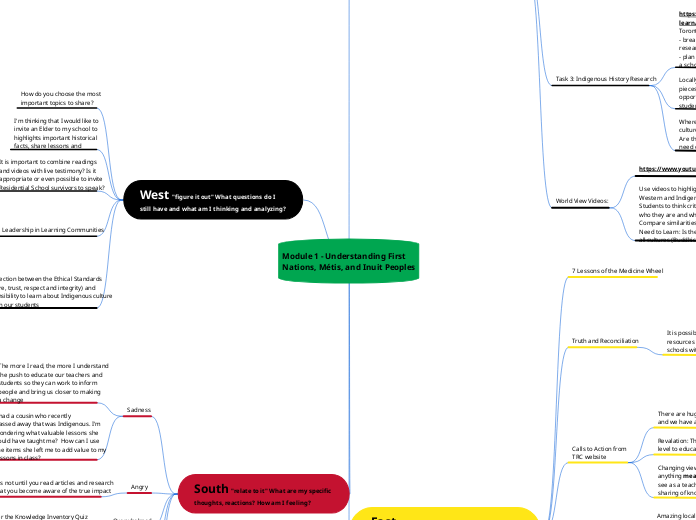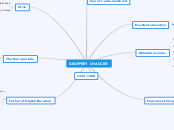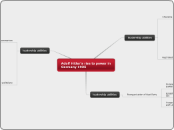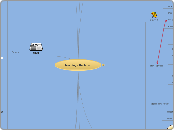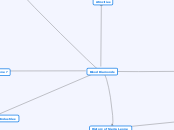Module 1 - Understanding First
Nations, Métis, and Inuit Peoples
South "relate to it" What are my specific
thoughts, reactions? How am I feeling?
Embarrassed
I am a Catholic and I feel somewhat
ashamed when I read testimony and watch
videos about Residential School survivors,
I think this is an important topic for students
and it should be shared through
readings, videos, survivor testimonies
and difficult conversations in the
classroom.
Energized
Task 4: Colonization Activity
paints a very real picture of the
suffering of all Indigenous peoples
and provides focus for importance
of sharing with students
I think I can use something
similar to this in my classroom
to start a conversation with
intermediate students
Overwhelmed
After the Knowledge Inventory Quiz
I still have a lot to learn
Angry
It's not until you read articles and research
that you become aware of the true impact
This goes much deeper than
colonization. Deep pain and suffering was
caused and continues to trickle
from generation to generation.
Sadness
I had a cousin who recently
passed away that was Indigenous. I'm
wondering what valuable lessons she
could have taught me? How can I use
the items she left me to add value to my
lessons in class?
The more I read, the more I understand
the push to educate our teachers and
students so they can work to inform
people and bring us closer to making
a change
West "figure it out" What questions do I
still have and what am I thinking and analyzing?
There is a connection between the Ethical Standards
of Teaching (care, trust, respect and integrity) and
having a responsibility to learn about Indigenous culture
and share it with our students
How do I avoid making an insensitive
mistake? Is there somewhere I can go/
look up that will help me sort through
what is relevant and appropriate and
what is not?
Leadership in Learning Communities
Does it make sense
to have an Indigenous
student leader in the
intermediate grade level?
Can the student leader have a
teacher leader/guide to support
school wide Indigenous activities,
lessons, assemblies?
It is important to combine readings
and videos with live testimony? Is it
appropriate or even possible to invite
Residential School survivors to speak?
I'm thinking that I would like to
invite an Elder to my school to
highlights important historical
facts, share lessons and
How do you choose the most
important topics to share?
East "see it" What did I learn from my
readings, tasks and research? How did I
respond (e.g. changing views, growth in learning)
Revelations: This in NOT just about Orange Shirt Day!
Western VS Indigenous
Worldview
Indigenous people believe very strongly in the
circle of life. Indigenous Corporate Training Website:
- very spiritual and focused more on connection with
the land and other people vs the acquisition of 'things'
Learning: this is a beautiful way to live and see the
world and I would like to share this view with my
students (and own children)
The West is focused on the individual and
anything you accomplish is only a win for yourself.
We tend to take and not replace
- this is a very selfish way to live
Changing View: starting to wonder if I may have
the wrong idea about what is important
https://www.ictinc.ca/blog/indigenous-peoples-worldviews-vs-western-worldviews
Growth in Learning:
Culture is synonymous with "ways of knowing"
http://www.statcan.gc.ca/daily-quotidien/171025/dq171025a-eng.htm
Key census data reveals Ontario has huge Metis
population and it is only growing. This is important
information to share with students as many do not know
that there are Aboriginal groups and communities in our
own backyard
Amazing local (Toronto) Aboriginal history
that makes me excited to share and
explore with my students
Calls to Action from
TRC website
Changing view: As an individual, I didn't think there was anything meaningful I could do to make a difference, now I see as a teacher I can make a HUGE difference through the sharing of knowledge and influencing my students to act.
Revalation: There are things we can do at the school
level to educate and make a difference
There are huge gaps in the education system
and we have a responsibility to close those gaps.
It is possible to find culturally appropriate
resources to share the truth about residential
schools with students
The future generations of survivors will be
dealing with the consequences of these
tragedies for some time and the children
and grandchildren of these survivors are
carrying the load with them today.
Revelation: this will show up in the classroom
and teachers need to be ready.
TRC website is filled with
useful reports, links and
educational resources for students
in grade 7 and 8
https://archives.nctr.ca/index.php/G7-G8
7 Lessons of the Medicine Wheel
North "do it" How will I use
what I learned and what do I still have to learn?
World View Videos:
Use videos to highlight specific differences between
Western and Indigenous views.
Students to think critically about how their views shape
who they are and what they believe.
Compare similarities and differences.
Need to Learn: Is there any overlap? If so, where? Is it across
all cultures (Buddhism, Catholic, ect?)
https://www.youtube.com/watch?v=4KzqMMYatc4&t=19s
Task 3: Indigenous History Research
Where else in Ontario can we learn about Indigenous
cultures and histories?
Are there parts of Ontario where Aboriginal people
need our help? What can we do as a class to add value?
Locally, across Canada, there are MANY specific
pieces of Indigenous history. Many stories, many
opportunities to investigate and share with your
students
https://www.heritagetoronto.org/explore-learn/indigenous-history-toronto-tour/
Toronto has such a rich Indigenous history
- break apart locations and review and expand
research on each
- plan field trip to one, some or ALL sites through
a school year (review and research each ahead of time)
Medicine Wheel Teachings
Use knowledge learned about the medicine
wheel in introduction to module 1 and 7 lessons PDF in combined visual arts and language lessons with pointillism and reflection.
The medicine wheel teachings are an excellent jumping off point to introduce the Indigenous peoples culture and provide a wonderful visual tool for class discussion.
knowledge Inventory
Use positive Indigenous history and culture to
teach the arts! Visual art, music, drama
Research project on
15 Indigenous People to Know in Canada
Student/Teachers can use during assemblies
during National Indigenous History month
- educate
- provide awareness
Use to teach history and facts to students
through research and investigation.
Students can test how much they know about
Indigenous culture and work together to
gather and share information with each other
Truth and Reconciliation
Fatty Legs, Not My Daughter (novels from survivors)
Use for novel studies, media and history lessons
Reflection on Calls to Action relating to education.
What can we do as a class/school/community?
Videos and TCR website documents will provide
a good foundation for tough conversations in the
classroom.
